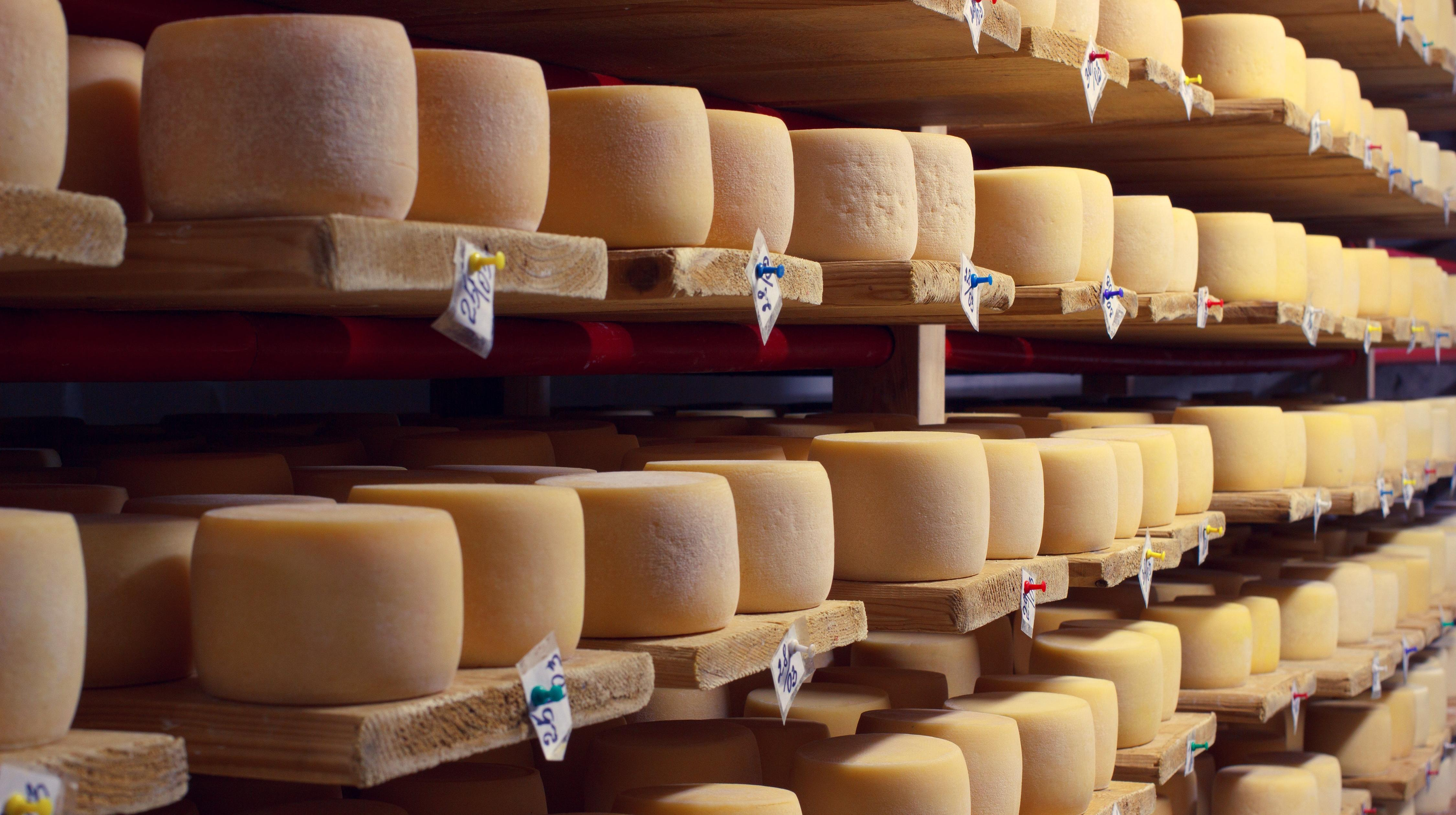Yes, Lactose Intolerant People Can Eat (Some) Cheese
It's widely understood that lactose intolerant people can't eat cheese, but that's not 100% true.
We may receive a commission on purchases made from links.
If lactose didn't cause so many problems, we wouldn't all know the word for it. As it is, however, lactose has a terrible way of wreaking havoc on some people's digestive systems. (I have only a mild situation with the stuff, and I consider myself lucky.) Those unfortunate enough to be stricken with lactose intolerance tend to avoid one of the most glorious dairy products known to humankind, which is cheese. But here's a little known fact: Lactose intolerance doesn't always mean a person has to skip out on cheese. They just have to choose the right cheese to snack on.
What is lactose?
Lactose is a sugar that's naturally found in dairy products. Some people's digestive systems can't handle that sugar because their intestine contains lower than average levels of lactase, the enzyme that breaks down lactose. This is what it means to be lactose intolerant.
When dairy is consumed by a lactose intolerant person, the inability to break down those sugars results in some not-so-fun stuff like bloating, stomach cramps, gas, and diarrhea. Luckily, beyond the discomfort, it's not a serious problem for most people with the condition.
Which types of cheese are high in lactose?
Not all cheese contains the same amount of lactose. Those with the highest lactose levels are going to be the fresh varieties—think ricotta, fresh mozzarella, and cottage cheese. So if you have severe intolerance, you might just need to bail on Neapolitan-style pizza altogether.
It's best for lactose intolerant folks to avoid non-fermented milk products such as fresh milk, along with ice cream. Devastating, we know—but there are some mighty fine alternatives that don't have dairy in them.
Processed cheeses like American are similarly best to avoid, since whey, which contains lactose, is added to these products in order lend them melting properties.
Which types of cheese are low in lactose?
Erika Kubick, author of the book Cheese Sex Death: A Bible for the Cheese Obsessed, writes on her blog that aged cheeses are the best bet for anyone with lactose intolerance. These are the dry, crumbly types of cheese packed with flavor. Aged cheeses are low in lactose because the milk sugars are converted to lactic acid as they ferment, and although there's still trace amounts of lactose in these varieties, it's safe to partake in a little and see what happens.
This means an aged cheese like Parmesan should be fine to eat within reason (as in, try an ounce). Kubick suggests that if your body can handle that, you may be able to try things such as a younger cheddar cheese to see how you fare, then after that, maybe a little bit of brie.
It all depends on the severity of an individual's lactose intolerance. If you really need to play it safe, there are lactase enzymes you can take orally, like Lactaid, to help your body break down dairy; many people report positive experiences with these supplements. If digestive issues persist, you might be allergic to casein (a protein found in milk). As delicious as cheese is, you don't want to force yourself into dietary discomfort.
Now, if you've already been diagnosed with lactose intolerance, this doesn't mean your body won't react if you gorge on hard cheese. But hey, at least a little taste might not necessarily hurt from time to time, just as long as you stick to small portions of the right varieties.
